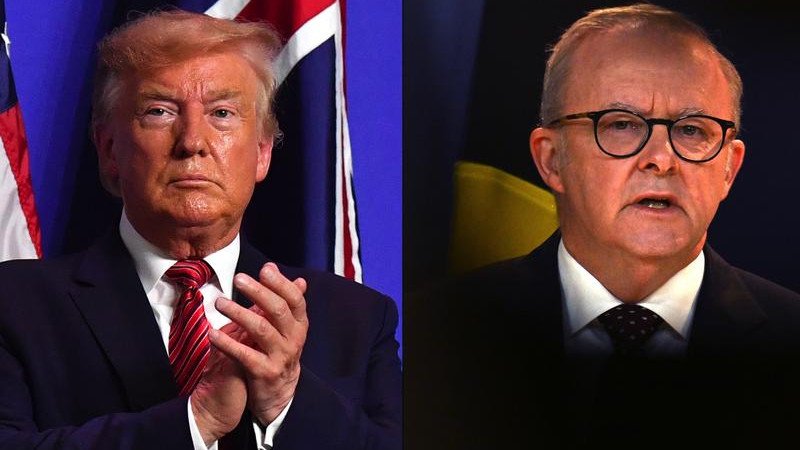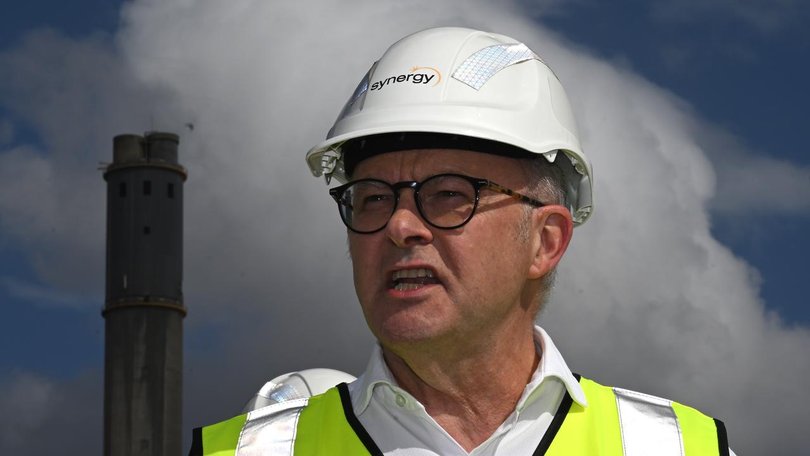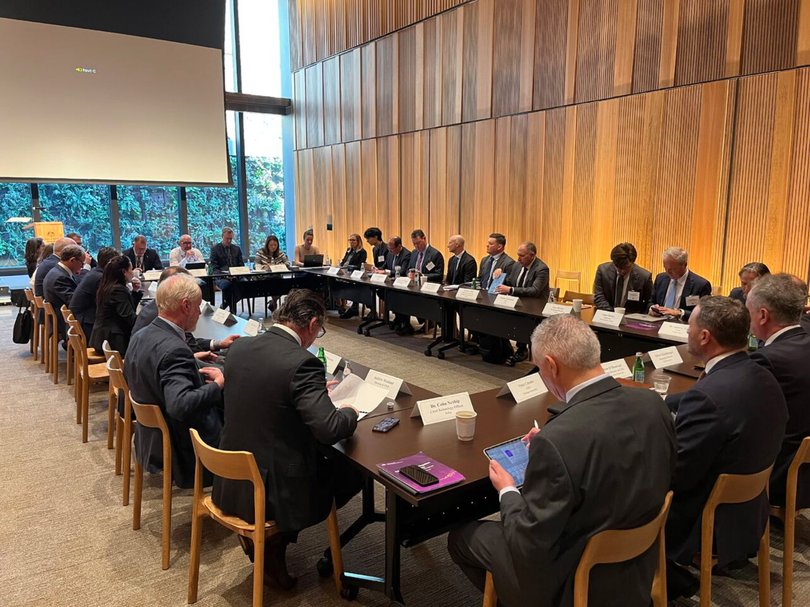Anthony Albanese will offer priority access to Australia’s critical minerals and rare earths to Donald Trump
Anthony Albanese is going to offer Donald Trump priority access for America to buy Australia’s critical minerals and rare earths when they meet this month, so the US Defence industry isn’t reliant on China.

Anthony Albanese will offer Donald Trump priority access to Australia’s critical minerals and rare earths when they meet this month so the US Defence industry isn’t reliant on China for the vital supplies.
The US and the UK will be given the chance to become preferred buyers for Australia’s rare earths after weeks of talks between the Prime Minister and strategic partners, The West understands.
But an industry source close to discussions says the future of the planned critical minerals strategic reserve will hinge on Mr Albanese’s visit to the White House in just over a fortnight.
Sign up to The Nightly's newsletters.
Get the first look at the digital newspaper, curated daily stories and breaking headlines delivered to your inbox.
By continuing you agree to our Terms and Privacy Policy.Australia needs to sign up friendly nations as buyers for its critical minerals to give the sector the financial stability it needs to get off the ground.
“If Trump says ‘yes’, the US is on board, this will work,” the industry source said.
Mr Albanese has had talks with other strategic partners about access to Australia’s resources, including UK Prime Minister Keir Starmer and Canada’s Mark Carney.
The PM last week raised the possibility of the sector being brought in under the AUKUS defence agreement umbrella.

Critical minerals and rare earths are crucial to defence uses and the energy transition.
Over the past 15-20 years, China has all but cornered the market in their production, giving it enormous control.
Its willingness to slap export restrictions on key resources has spurred the Trump administration into action to find new supplies.
Resources company executives who joined an Austrade delegation to Washington and New York in September told The West this week that it was clear the Trump administration had made “a real aggressive timetable shift” in terms of how quickly it wanted to access critical minerals outside of China.
The White House has previously aired its concerns about being heavily dependent on supplies from “adversarial nations”.
One potential glitch ahead of the October 20 meeting is if the government shutdown in Washington isn’t resolved and American bureaucrats can’t finalise any agreement from their end.
However, it’s expected that even if final details aren’t nutted out, Mr Albanese has enough to offer the President, given the resources Australia can offer.
“Whether you’re looking at lithium with the reserves that we have, or cobalt or copper or vanadium, we have great resources,” he said last week.

Design work on the $1.2 billion strategic reserve announced during the election campaign is now underway.
It’s likely to include either the government guaranteeing a floor price or taking a position as a buyer of last resort.
It’s expected to cover rare earths initially and start running in the second half of 2026.
Peak industry body, the Association of Mining and Exploration Companies, has brought on board Resources Minister Madeleine King’s former critical minerals adviser Sash Pavic as it helps the Government design how the strategic reserve could work.
It’s also added former WA government chief of staff Tarnya Widdicombe to its team.
The hirings give AMEC — which was also behind the production tax credits policy — closer ties to Labor governments at State and Federal levels.
“We’re looking forward to both Sash and Tarnya applying their skills and networks to strengthen AMEC’s advocacy on behalf of our members,” AMEC chief executive Warren Pearce said.
Privately, federal ministers make little secret of tensions in the government’s relationship with rival industry group the Minerals Council of Australia.
Australia’s critical minerals are also drawing interest from Canada, Europe, Japan and Korea, with the Quad and G7 forums looking at ways for members to shift away from relying on China.
Industry Minister Tim Ayres and Energy Minister Chris Bowen will host a summit in November for investors looking to bring their money to Australian projects.
Originally published on The West Australian

